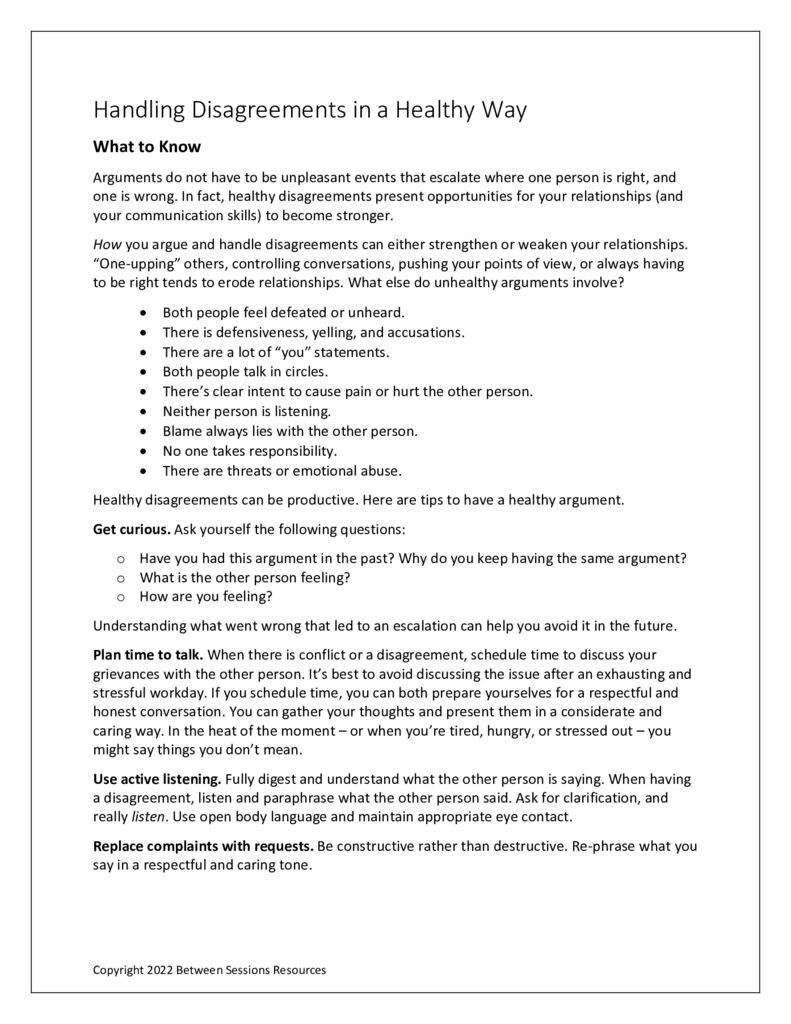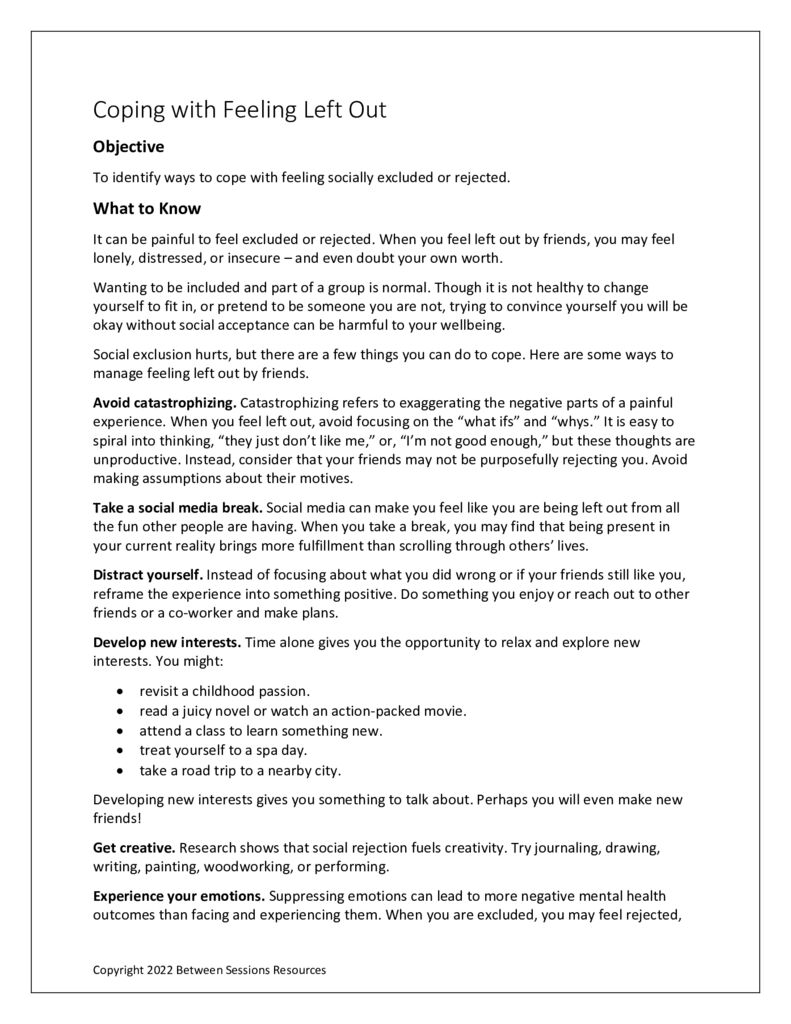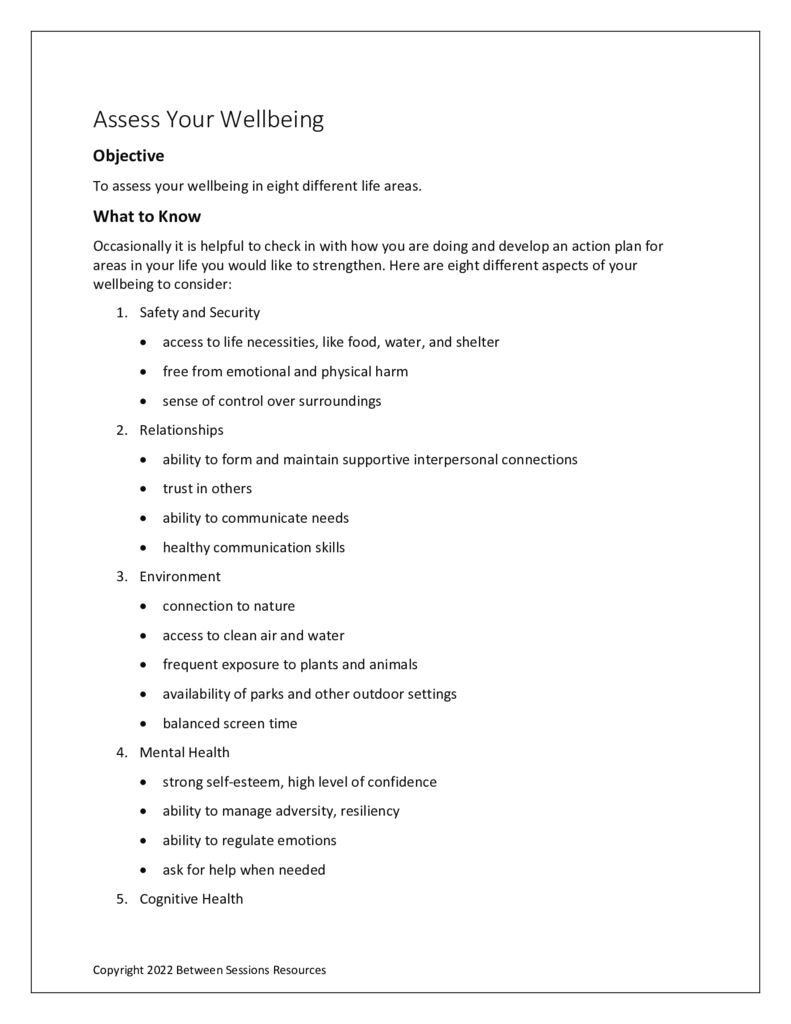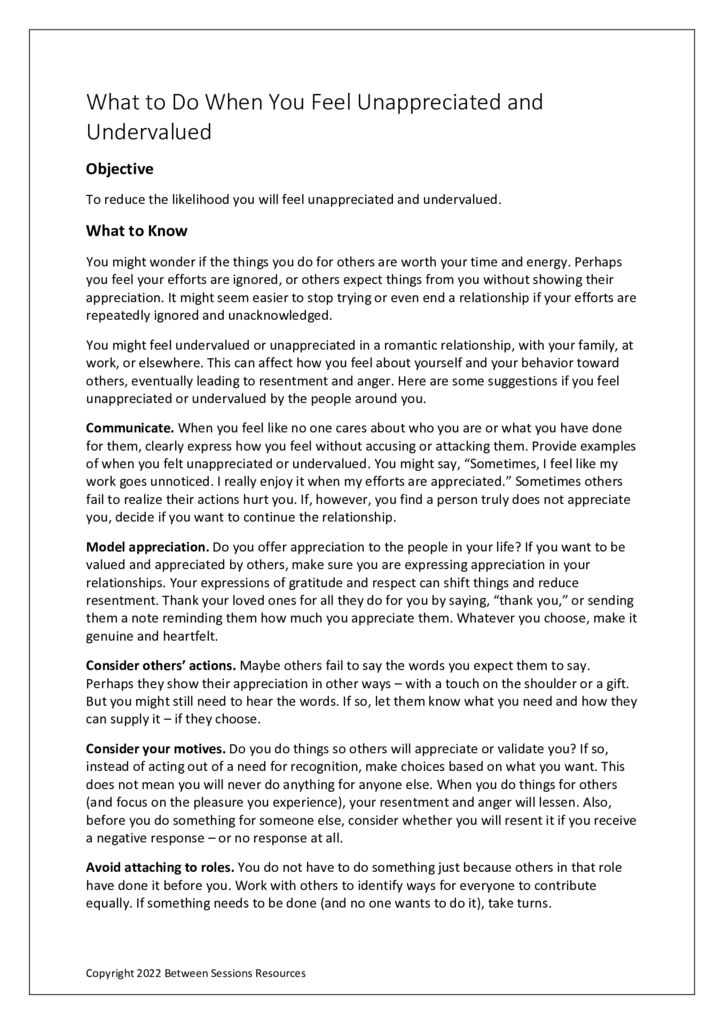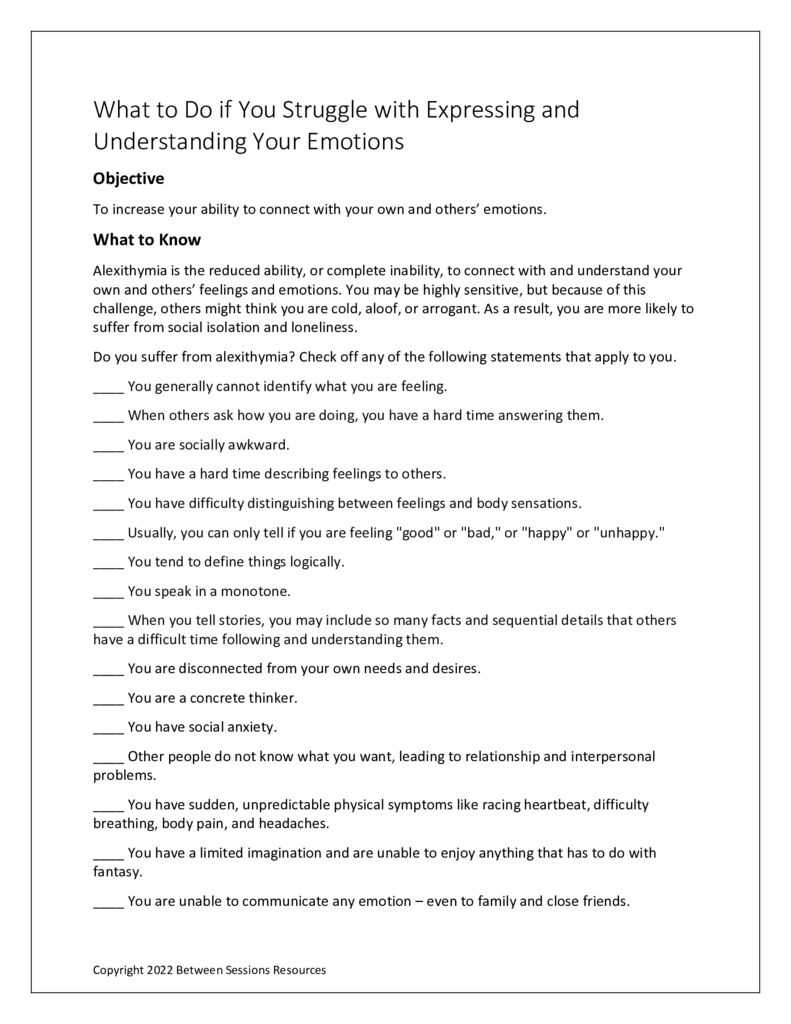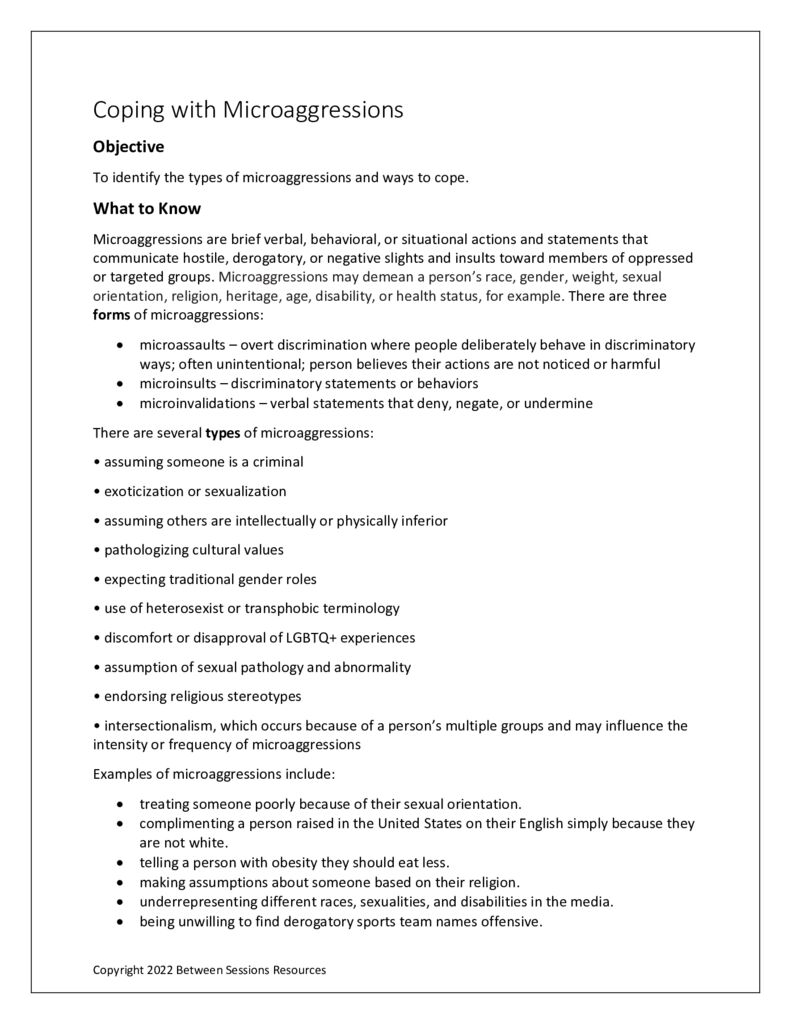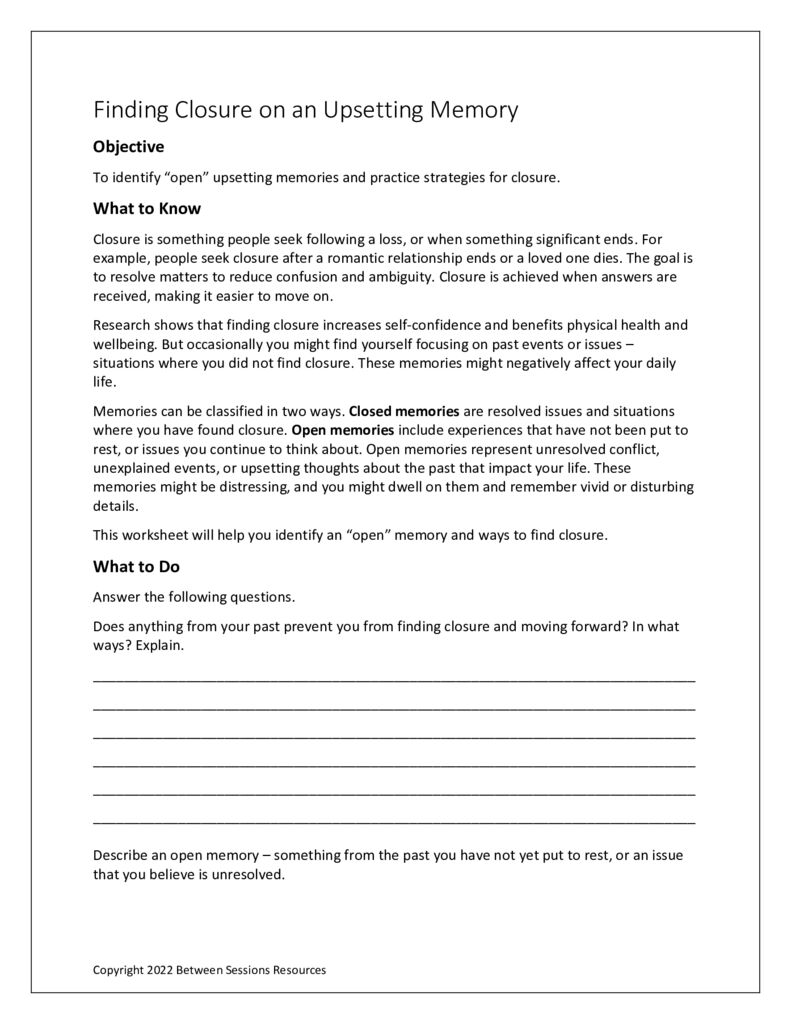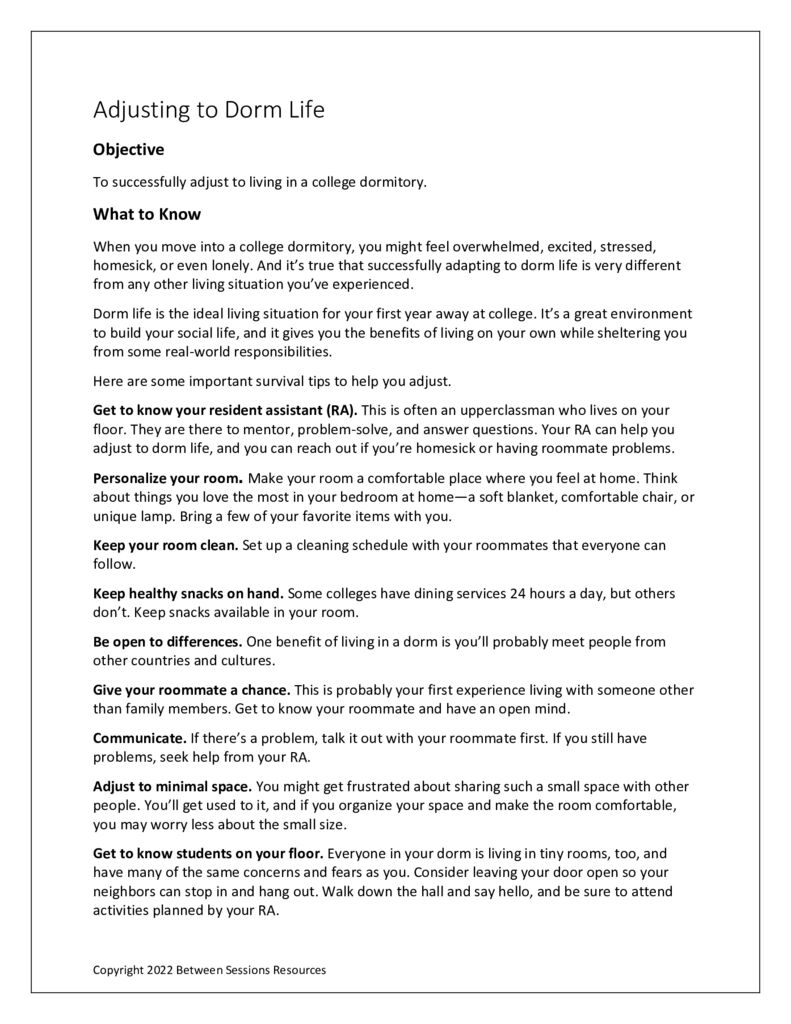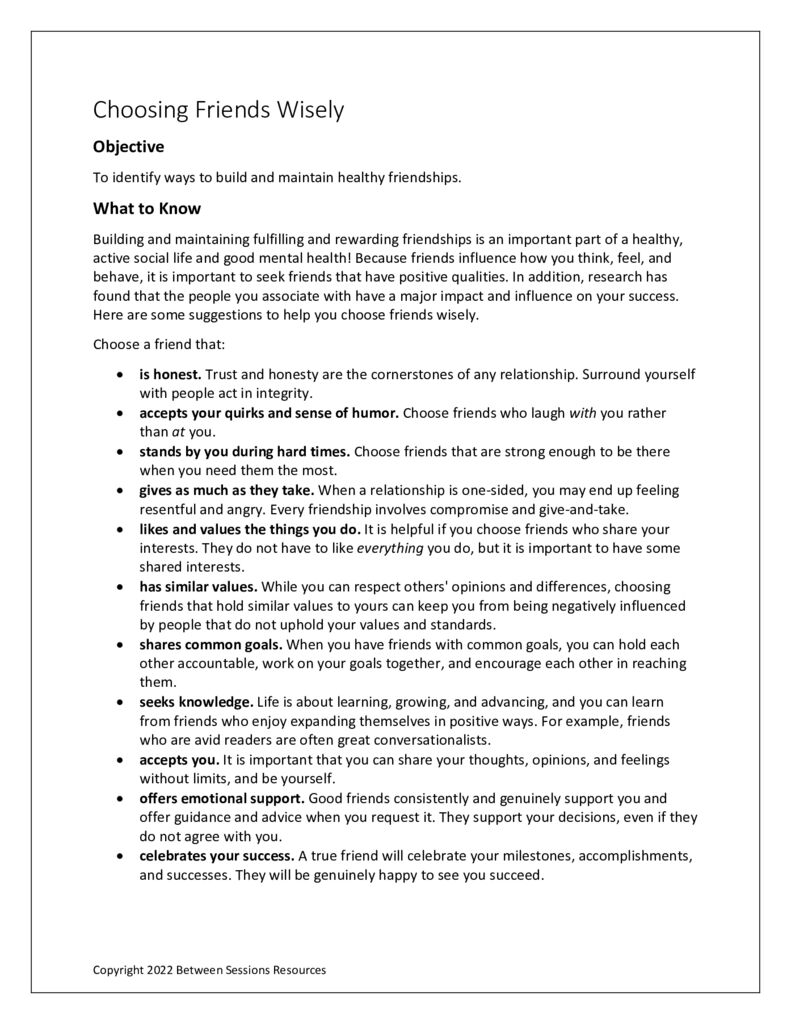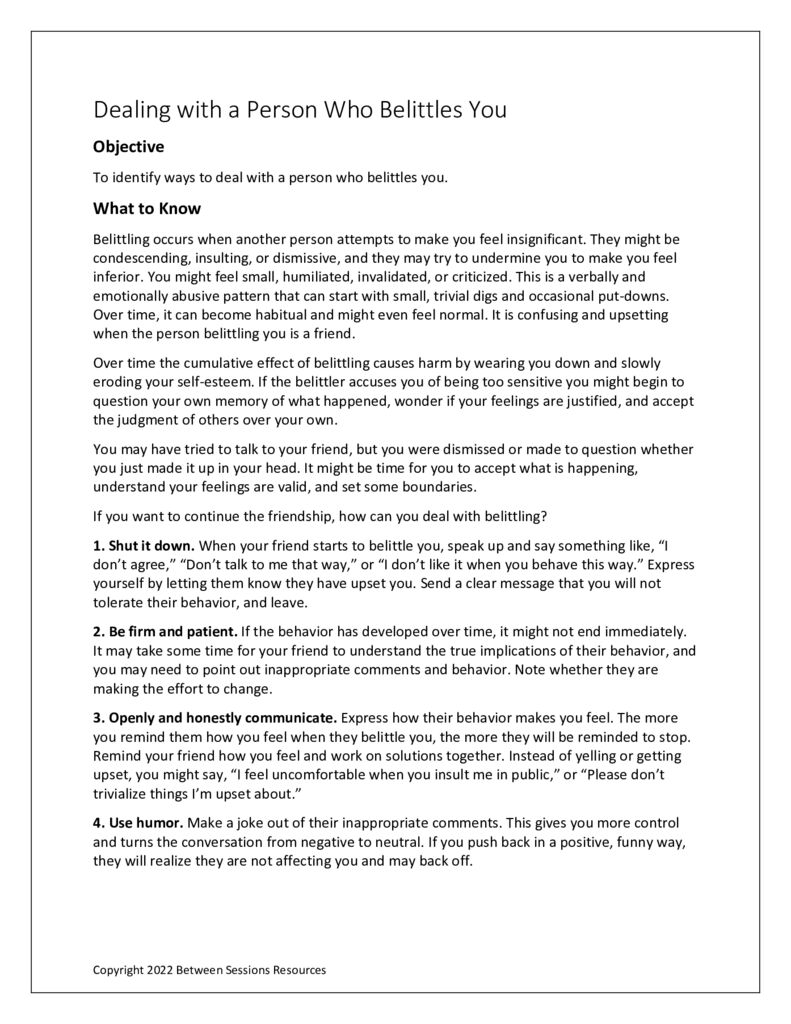This worksheet suggests how to have “healthy” disagreements, which can actually strengthen relationships. The worksheet gives specific strategies on how people can take a more productive approach to disagreements. It then gives questions to help people analyze what they did right or wrong in a recent argument. (0722, communication, relationships, arguing, anger)
This worksheet was designed for people who feel left out or excluded by their friends. It contains suggestions on how to deal with this problem ranging from finding new interests to more direct communication. Questions help people understand why social rejection may be occurring and a chart is included to help people expand their social circle. (0622, friendship, ASD, Autism, social skills)
The worksheet suggests that people do a wellness checkup in 8 areas of their life: safety and security, relationships, environment, mental health, cognitive health, physical health, community, and purpose. It provides a form for people to rate themselves in each area from “in crisis” to “doing great.”
This worksheet is designed to help people who feel that others are not acknowledging their efforts to be helpful on an ongoing basis. It provides a dozen suggestions on what people can do to feel better about themselves and those around them. The worksheet is designed to help people think about why feeling appreciated is important to them and how they can get the appreciation they seek. (0522, social skills, relationships, marriage, parenting)
This worksheet is designed to help people if they have alexithymia, “the reduced ability to connect with and understand your own and others’ feelings and emotions.” A checklist is given to help people identify whether they have this problem and if it might be an underlying cause of other struggles. The worksheet gives three steps to help people learn to identify and express their feelings plus techniques on how to practice these steps. (0522, emotions, emotional regulation, emotional intelligence, communication)
This worksheet is designed to help people deal with “microagressions, ” brief verbal, behavioral, or situational actions and statements that communicate hostile, derogatory, or negative slights and insults toward members of oppressed or targeted groups. Microaggressions may demean a person’s race, gender, weight, sexual orientation, religion, heritage, age, disability, or health status. The worksheet describes a process on how people can think about and react to microaggressions. (0522, prejudice, discrimination, diversity, aggression)
This worksheet is designed to help people identify when upsetting memories need closure. It gives four strategies to help find closure on these memories including: create distance, reinterpret, observe, divert and distract. (0522, memories, grief, divorce, loss, healing, PTSD)
This worksheet is designed to help new college students have a better experience in their dormitory. It suggests specific ways to deal with roommates while also paying attention to their own wellness needs. (0522, college, relationships, transitions, adjustment)
This worksheet is designed to help people develop friendships that support their personal growth as well as their overall well-being. (0522, relationships, social skills, well-being)
This worksheet is designed to help people who deal with someone who is condescending, insulting, or dismissive in an attempt to make them feel inferior. It suggests five different strategies to deal with people who are belittling and provides a place to record the success of their attempts to deal with this kind of behavior. (0422, relationships, anger control, communication, assertiveness)

